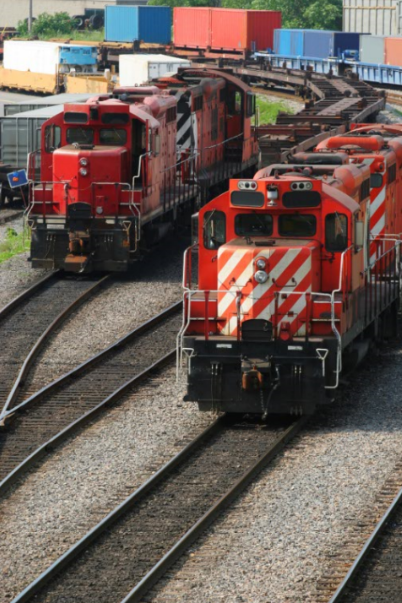Rail/Intermodal
The Surface Transportation Board released CSX from enhanced service reporting requirements due to the carrier’s sustained achievement and surpassing of self-imposed service and hiring targets. The expanded service reporting requirements were set to expire within the next week if not extended.
The agency chose to extend the enhanced reporting for BNSF, Norfolk Southern, and Union Pacific on the grounds that they had not achieved – or not consistently achieved – the targets the carriers set for service and hiring gains earlier in the service crisis. Those carriers will be required to continue reporting service and hiring details on a more robust basis through the end of the year. STB could further extend the reporting requirement if the carriers do not show improvement in their metrics.
The carriers gave back first-quarter improvements in service performance metrics late in the quarter and remained near historical averages early in the second quarter and this likely played a role in the board’s decision to extend the reporting requirements. If the three remaining carriers do not improve their service, it is likely the board would further extend the enhanced reporting requirements.
Locomotive Emissions
The state of California, with apparent backing from the U.S. Environmental Protection Agency, has taken a move to regulate locomotive emissions. The California Air Resources Board (CARB) approved a regulation that would prohibit the use of any locomotive more than 23 years old by 2030. The CARB rule also requires all new freight locomotives to achieve zero emissions when operating in the state by 2035. Passenger and yard locomotives face an accelerated zero emissions standard of 2030. The Association of American Railroads noted in response to the rule that there is no commercially viable path forward as of today to meet CARB’s deadline.
Meanwhile, EPA’s proposed rule that mostly addresses truck emissions includes provisions purporting to allow states the ability to adopt and enforce rules similar to those enacted by CARB for so-called “non-new” locomotives operating within their states.
The rulemakings appear to violate the Interstate Commerce Commission Termination Act of 1996, which prohibited states and municipalities from regulating railroad operations. However, the industry will likely need to fight the regulations in court. Any mandate, environmental or otherwise, that requires carriers to incur additional costs by forced early obsolescence will result in higher costs that will be shouldered by all shippers.
Intermodal/Carload Volume
Intermodal volumes improved for the third straight week coming out of the Easter holiday, but those gains still leave it well below the 2022 and five-year average levels. It will likely take a change in the overall competitive dynamics between rail intermodal and truck for volumes to claw all the way back to normal levels, but the recent performance is at least a little bit of a reason for optimism. Carload volumes are similarly near their highs of the year, even after a slight sequential decline in the latest period, though some commodity groups like coal and pulp and paper posted significant declines in the latest week.
See how your organization can capitalize on the power of actionable intelligence by clicking below:

